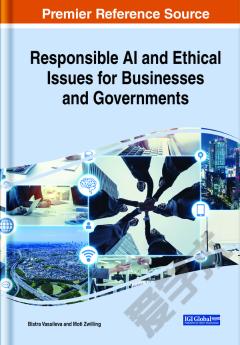Responsible AI and Ethical Issues for Businesses and Governments
The research surrounding artificial intelligence (AI) is vast and quite diverse in both its applied and theoretical fields. AI tools and techniques, such as machine learning, data mining, neural networks, and advanced analytics, are evolving at a high speed, creating a consistent need for updated research. This is especially relevant with frequent developments for the application of AI technology in many science and industry sectors. This rapid expansion created a need for research that focuses on the questions surrounding the development of AI such as ethical issues, responsible AI methods and applications, and its widespread implementation. Within the answers to these questions is the prevailing notion that AI should be accountable, explainable, transparent, and fair for all organizations and individuals. Responsible AI and Ethical Issues for Businesses and Governments widens the understanding of AI outside of the “narrow” technical perspective to a broader viewpoint that embraces the links between AI theory, practice, and policy. The chapters in this book discuss the basic philosophical and conceptual foundations of AI and explores the responsible application of AI tools and methods, the moral aspects of AI, practical issues, and responsible AI implementation across a range of industries. While highlighting topics that include digital transformation, ethical competence, information literacy in AI, and the interaction between AI and humans, this book is ideally designed for IT specialists, technology developers, technologists, ethicists, practitioners, stakeholders, academicians, students, and researchers who are interested in learning more about the ethical and responsible use of AI.
{{comment.content}}








 京公网安备 11010802027623号
京公网安备 11010802027623号